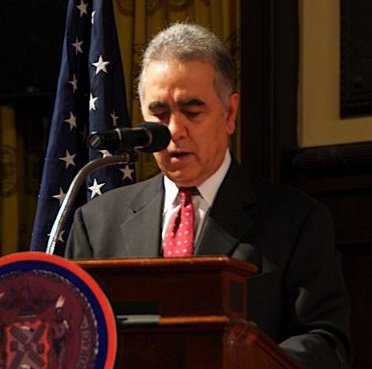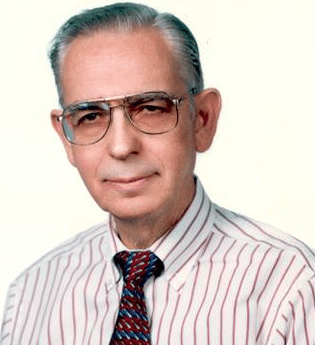
The Turkish Coalition of America (TCA) has been on a rampage in recent years, filing lawsuits against scholars, public officials, and civic groups who support the recognition of the Armenian Genocide.
Last week, a federal appeals court put an end to TCA’s legal tirade against the University of Minnesota by unanimously upholding a federal court’s decision dismissing TCA’s baseless allegations.
The Turkish advocacy group had filed a lawsuit against Prof. Bruno Chaouat, Director of the Center for Holocaust and Genocide Studies at the University of Minnesota, for labeling TCA’s website and others as “unreliable.” The university’s webpage had posted the following stern admonition to students: “We do not recommend these sites. Warnings should be given to students writing papers that they should not use these sites because of denial, support by an unknown organization, or contents that are a strange mix of fact and opinion.”
Initially, TCA had complained that the inclusion of TCA’s website on the university’s list of “Unreliable Websites” violated the Turkish group’s freedom of speech. The university rejected TCA’s allegation, although, the Center for Holocaust and Genocide Studies revised its website on Nov. 18, 2010, removing the “Unreliable Websites” and recommending new resources for genocide research. The university asserted that the revision was not prompted by TCA’s complaint and denied any wrongdoing. On Nov. 24, 2010, Prof. Chaouat posted a statement on the Center’s website explaining that the list of “Unreliable Websites” was removed because he did not want to “promote, even negatively, sources of illegitimate information.”
TCA then filed a lawsuit against the university, its president, and Prof. Chaouat, claiming that including its website on the same list as websites denying the Jewish Holocaust, stigmatized the Turkish organization. The court dismissed the lawsuit.
A three-judge panel of the 8th circuit federal appeals court upheld the lower court’s decision on May 3, 2012, ruling that the university did not violate TCA’s First Amendment rights, since it neither blocked nor restricted access to the Turkish website.
The judges also rejected the Turkish group’s second claim that it was defamed when the university stated that TCA’s website is “unreliable,” engages in “denial,” presents “a strange mix of fact and opinion,” and is an “illegitimate source of information.” In a sinister attempt to win the lawsuit, TCA claimed that its website did not deny certain underlying historical facts, affirming that “certainly hundreds of thousands of Armenians died.” However, since the Turkish website had alleged that it is “highly unlikely that a genocide charge could be sustained against the Ottoman government or its successor,” the judges ruled in favor of the university asserting that TCA had in fact engaged in “denial.”
TCA’s malicious lawsuit disturbed many US scholars who were worried that this case would set a dangerous precedent and have a chilling effect on academic freedom. The gravity of these concerns had prompted the Middle East Studies Association to demand TCA to withdraw its lawsuit.
Although TCA failed in its bullying tactics against the University of Minnesota, there is no guarantee that this Turkish group will stop suing other academic or civic organizations for refusing to cave in to Turkey’s denialist campaign. It should be noted that TCA spent $630,000 on legal fees out of its 2010 budget of $3.6 million. Significantly, no mention was made in its annual report of the sources of TCA’s funding, except a passing remark that it is “supported entirely by private donations.” The Boston Business Journal reported that Turkish-American Yalcin Ayasli, founder of Hittite Microwave Corp., contributed $30 million to TCA in 2007.
TCA engaged in the following wide ranging activities and political objectives with its $3.6 million budget in 2010:
— Delivered 75 position papers to members of Congress and US opinion leaders;
— Monitored the American media;
— Took a Native American business delegation to Turkey;
— Lobbied the Congress against the Armenian Genocide resolution;
— Advertised in Roll Call and Washington Quarterly;
— Organized Summer internships in Washington for Turkish students;
— Provided scholarships to African-American, Armenian-American, Hispanic American, Native American, and Turkish-American students to study in Turkish universities;
— Awarded grants for academic conferences;
— Offered research fellowships to professors Michael Gunter, Justin McCarthy, Hakan Yavuz, and others;
— Contributed $100,000 grants to each of the Assembly of Turkish American Associations and Federation of Turkish American Associations, and a smaller amount to the Azerbaijan Society of America;
— Spent $630,000 on lawsuits against various entities that support the Armenian Genocide issue;
— Funded congressional trips to Turkey, and
— Filed a report with the US government accusing the Armenian National Committee of America (ANCA) of being a “hate group.”
Given TCA’s tax-exempt charitable status, the Internal Revenue Service should investigate the legality of this Turkish group’s involvement in such extensive political and lobbying activities.








